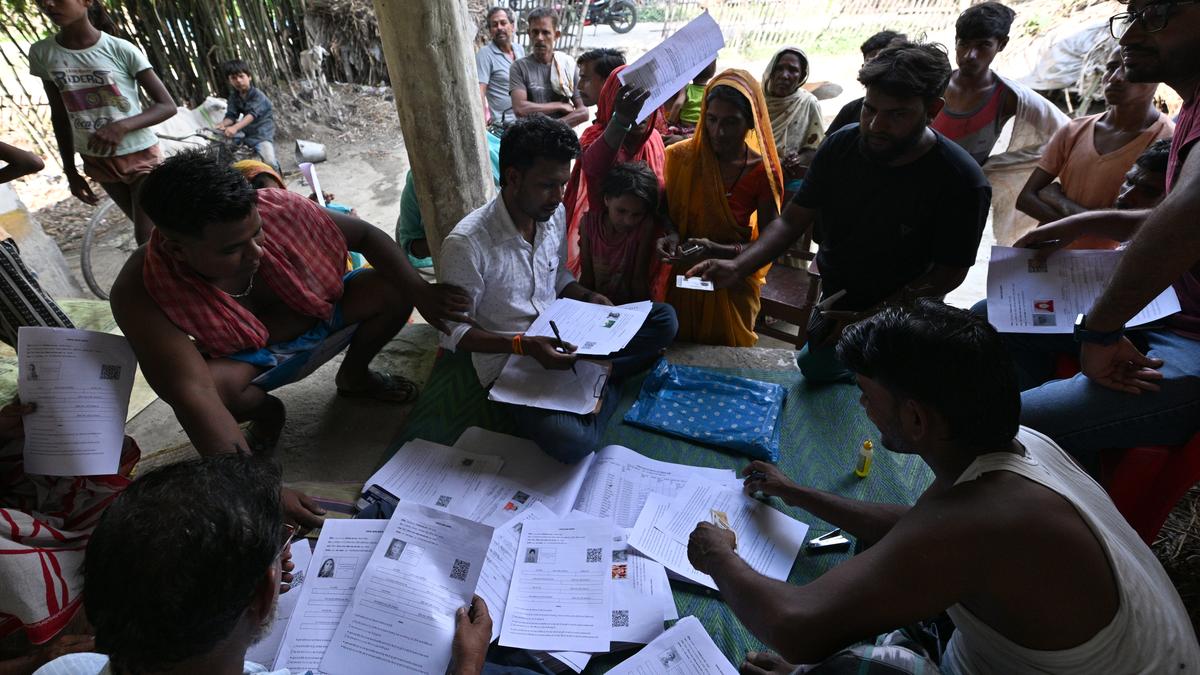Migrant Disenfranchisement in India: A Democratic Challenge

- 24 Aug 2025
In News:
India, the world’s largest democracy, faces a silent yet critical challenge: the systematic disenfranchisement of internal migrants. Recent reports indicate that during the Special Intensive Revision (SIR) of Bihar’s electoral rolls, nearly 3.5 million voters—about 4.4% of the state’s electorate—were removed. Most affected are migrant workers who were absent during house-to-house verification and subsequently labelled as “permanently migrated,” effectively losing the right to vote both at their home and destination states. This development underscores a structural weakness in India’s electoral system and highlights the democratic deficit faced by mobile citizens.
Understanding Migrant Disenfranchisement
Migrant disenfranchisement occurs when workers are excluded from voting due to absence from their home constituencies and lack of registration in destination states. This results in a “political limbo,” particularly for circular and split-family migrants, who move seasonally for economic survival. Bihar alone has around 7 million annual out-migrants, many of whom live in rented accommodations, slums, or temporary worksites, often lacking the documentation required for voter registration.
Legal Framework and Safeguards
The Representation of the People Acts, 1950 & 1951, guarantees citizens the right to be enrolled in their ordinary residence constituency. ERONET facilitates continuous updating of electoral rolls, and the Election Commission of India (ECI) has proposed portability measures such as “One Nation, One Voter ID,” though these remain largely unimplemented. Proxy voting exists for overseas Indians but does not extend to internal migrants. Civil society initiatives, including surveys in Kerala, have highlighted gaps in voter registration and access for mobile populations.
Structural Causes of Disenfranchisement
- Sedentary Electoral Framework: Voter registration is tied to fixed residence and physical verification, disadvantaging migrants in transient living conditions.
- Circular and Split-Family Migration: Seasonal migration is often misread as permanent relocation, prompting administrative deletion from rolls.
- Administrative and Social Barriers: Migrants face bureaucratic hurdles, digital illiteracy, and social exclusion, while host states may discourage enrolment due to perceived political consequences.
- Regionalism and Sub-Nationalism: Migrants are frequently viewed as outsiders, and domicile norms for jobs can restrict political participation.
Consequences
Disenfranchisement deepens inequalities and disproportionately affects poor, seasonal, and vulnerable populations, including women near border areas. Bihar’s average voter turnout (53.2%) lags behind Gujarat (66.4%) and Karnataka (70.7%), reflecting the systemic exclusion of mobile citizens. The result is a two-tier democracy where the economically marginalized are politically voiceless.
Way Forward
- Portable Voter Identity: Develop Aadhaar-linked, mobile electoral IDs enabling voting across home and work constituencies, with privacy safeguards.
- Cross-State Coordination: EC should implement cross-verification before deletion and enable temporary voter registration for seasonal migrants.
- Civil Society Outreach: Panchayats and NGOs can facilitate re-enrolment campaigns, replicating Kerala’s successful survey models.
- Policy Harmonisation: Align electoral reforms with labour codes and welfare portability, recognising circular migration as an economic reality.
Conclusion
India’s democracy depends on the participation of all citizens, including migrants whose remittances underpin state economies. Without urgent reforms to ensure portable voter rights, inter-state coordination, and inclusive outreach, millions risk losing their political voice. Addressing migrant disenfranchisement is not merely an administrative task but a fundamental imperative for a representative and inclusive democracy.
